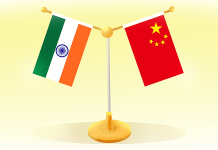The Delhi High Court has ruled that the Wikimedia Foundation must remove allegedly defamatory content from Wikipedia related to the news agency ANI. This decision marks a significant moment in India’s ongoing battle between digital platforms and legal regulations surrounding defamation, free speech, and content moderation.
In This Article:
The Case Against Wikipedia
ANI, a leading Indian news agency, filed a lawsuit against the Wikimedia Foundation, the non-profit organization that operates Wikipedia. The lawsuit stemmed from content on Wikipedia that referred to ANI as a government “propaganda tool.” ANI argued that such statements were defamatory and harmful to its professional reputation.
The Delhi High Court’s ruling, issued on April 3, 2025, deemed these statements as defamatory and ordered their removal. The court stated that the content tarnished ANI’s reputation and should not remain accessible on a globally influential platform like Wikipedia.
Significance of the Verdict
This ruling has sparked widespread discussions about the balance between free speech and the right to reputation. Wikipedia, known for its user-generated and community-driven content, has often faced scrutiny regarding the accuracy and neutrality of its information. This case underscores the growing challenges online platforms face in regulating content while preserving free expression.
Key Takeaways from the Judgment
- Legal Precedent for Defamation Cases – The ruling strengthens the legal framework for organizations and individuals seeking redress against defamatory content online.
- Accountability of Digital Platforms – It reinforces the responsibility of platforms like Wikipedia to ensure that content hosted on their sites does not violate legal standards.
- Implications for Free Speech – Critics argue that such rulings might set a precedent for censorship, potentially limiting open discourse and access to information.
- International Perspective – Similar cases have emerged globally, where courts have compelled digital platforms to take down content deemed defamatory or harmful.
Wikimedia’s Response and Legal Battle
The Wikimedia Foundation has yet to comment on whether it will appeal the ruling. However, in the past, Wikimedia has defended its content moderation practices, arguing that Wikipedia is an open-source platform edited by volunteers worldwide. The organization has also expressed concerns that selective takedowns may have a “chilling effect” on free speech.
In January 2025, Wikimedia had approached the Supreme Court of India, challenging an earlier content takedown order related to this dispute. The organization argued that court-ordered removals could hinder Wikipedia’s mission of providing free knowledge.
Defamation vs. Free Speech: A Complex Debate
The ruling reignites the debate on defamation laws in the digital era. While freedom of speech is a fundamental right, it is not absolute and must be weighed against the right to reputation. Indian courts have historically maintained that defamatory content must be removed to prevent reputational harm.
Key Perspectives on the Issue
- Legal Experts: Some argue that the ruling strengthens legal protection against false and damaging information.
- Journalistic Organizations: Many journalists and media watchdogs view the decision as a potential threat to press freedom.
- Tech Policy Analysts: Some believe that compliance with such rulings could set a precedent for further government-imposed restrictions on digital platforms.
Implications for Wikipedia and Other Platforms
This case is part of a broader trend where courts worldwide are holding digital platforms accountable for user-generated content. India has been tightening its digital regulations, with several cases targeting tech giants like Twitter (now X), Google, and Facebook over content moderation issues.
For Wikipedia, this ruling raises critical questions about:
- How it moderates content – Should Wikipedia implement stricter oversight on sensitive topics?
- Legal jurisdiction – Should content be removed globally or only in India?
- Future compliance – Will Wikipedia set new policies to prevent such legal challenges?
ANI’s Demand for Damages
Beyond content removal, ANI is seeking damages of approximately ₹2 crore ($240,000) and a public apology from Wikimedia. This financial claim adds another layer to the dispute, as it raises questions about whether platforms should be monetarily liable for user-generated content.
Broader Digital Regulation Trends in India
India has been actively regulating digital platforms through laws like the IT Rules, 2021, which require intermediaries to remove unlawful content when notified. This ruling reinforces the Indian government’s stance on platform accountability and signals increased scrutiny on global tech companies operating in the country.
The Delhi High Court’s order against Wikipedia highlights the evolving nature of digital defamation laws in India. As Wikimedia navigates this legal challenge, the outcome could influence how other platforms handle controversial content. Whether this ruling promotes responsible content moderation or threatens free expression remains a topic of intense debate.
By – Jyothi




